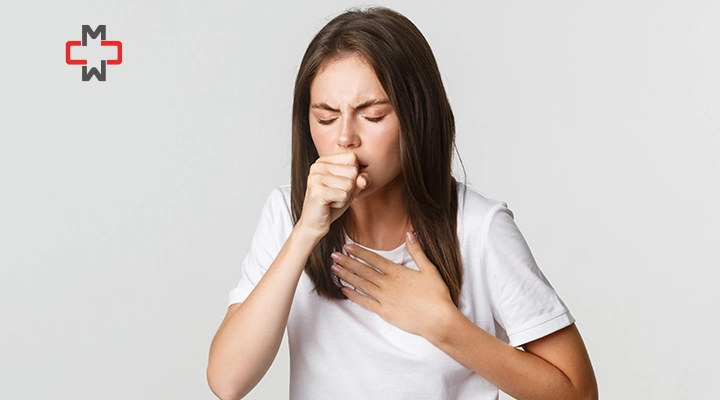A tickly cough can be annoying, especially when it shows up unexpectedly or keeps you awake at night. While most coughs clear up on their own, knowing how to calm one quickly can provide comfort and help you get through your day.
Quick Solutions to Stop a Tickly Cough Instantly
If you need fast relief, try these methods:
✅ Sip Warm Honey and Lemon Water – Honey coats the throat and reduces irritation, while lemon helps clear mucus. Mix a teaspoon of honey with warm water and a squeeze of lemon for quick relief.
✅ Gargle with Salt Water – Salt water soothes the throat and reduces inflammation. Mix half a teaspoon of salt in warm water and gargle for 30 seconds.
✅ Try Menthol Lozenges – Menthol helps calm the cough reflex and soothe irritation. Lozenges are a great choice when you’re out and about.
✅ Drink Warm Ginger Tea – Ginger has anti-inflammatory properties that can calm a cough. Add a few slices of fresh ginger to hot water and let it steep for 5 minutes before drinking.
✅ Use Steam Inhalation – Steam helps loosen mucus and calm your airways. Add a few drops of eucalyptus oil to hot water, cover your head with a towel, and inhale deeply.
How to Stop a Tickly Cough at Night
If your cough gets worse at night, try these steps:
✅ Use a Humidifier – Moist air helps reduce throat dryness.
✅ Sleep with Your Head Elevated – Propping your head with extra pillows can prevent mucus buildup.
✅ Have a Warm Drink Before Bed – A soothing tea or warm lemon and honey drink can calm your throat.
✅ Reduce Bedroom Irritants – Keep your room free of dust and allergens to minimize coughing fits.
Long-Term Strategies for Persistent Coughs
If your cough keeps coming back, consider these tips:
✅ Drink Plenty of Fluids – Staying hydrated helps thin mucus and soothe your throat.
✅ Try Herbal Teas – Teas with thyme, peppermint, or licorice root can calm irritation.
✅ Avoid Common Triggers – Smoke, dust, and dry air can worsen your cough. Keeping your home clean can help.
✅ Rest Your Voice – Speaking too much can worsen irritation, so try to rest your voice when needed.
When to See a Doctor
Visit a doctor if:
❗ Your cough lasts more than 3 weeks.
❗ You experience chest pain or difficulty breathing.
❗ You have a persistent cough that worsens over time.
❗ You notice blood in your cough or feel unwell for no clear reason.
FAQs about How to Stop a Tickly Cough Instantly
How do you stop an uncontrollable tickly cough?
Sip warm honey and lemon water, or try steam inhalation with eucalyptus oil to calm your airways quickly.
How to get rid of a tickly cough fast?
Gargling with salt water or using menthol lozenges can provide immediate relief.
How to get rid of a cough that feels like a tickle?
Drink herbal teas like peppermint or thyme, and stay hydrated to soothe the tickly sensation.
How do you get rid of a dry cough in 5 minutes?
Try sipping warm ginger tea, using a humidifier, or gently inhaling steam for fast relief.
Final Tip
If your cough persists despite home remedies, book an appointment with Dr. Syra Hanif at Manhattan Medical Arts for expert advice and personalized care.
-
About The Author
Dr. Syra Hanif M.D.Board Certified Primary Care Physician
Dr. Syra Hanif is a board-certified Primary Care Physician (PCP) dedicated to providing compassionate, patient-centered healthcare.
Read More







